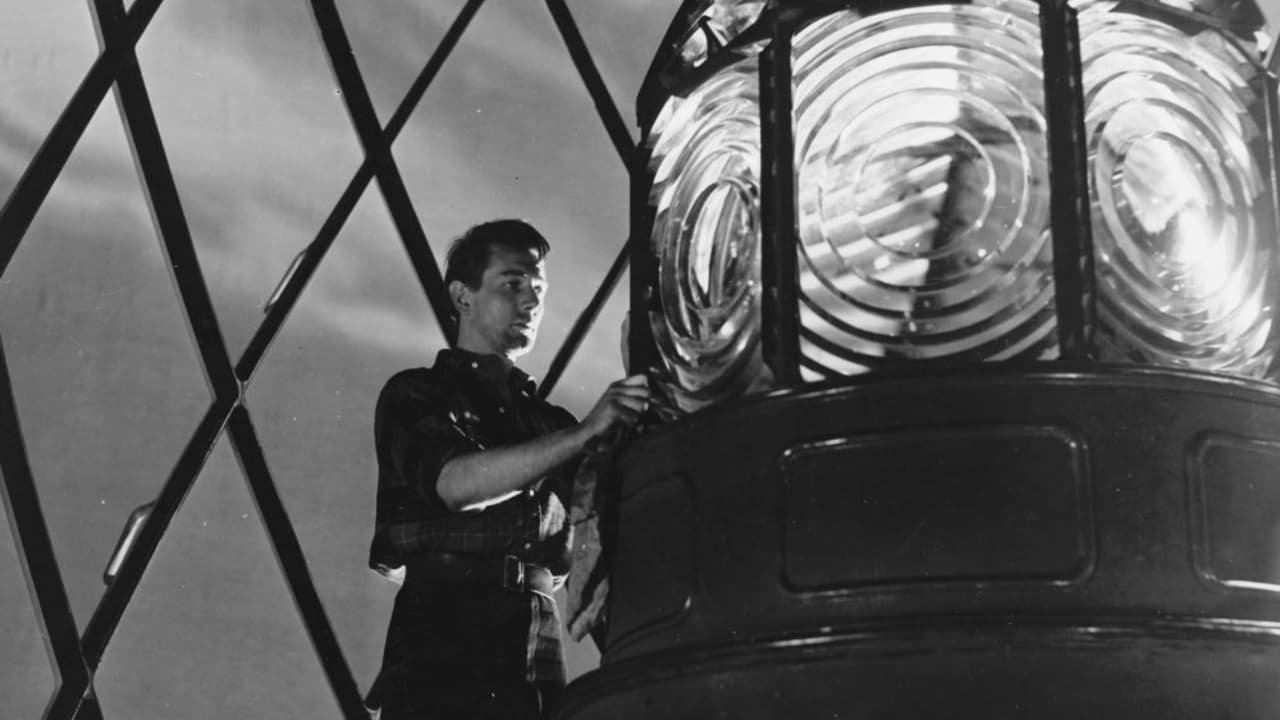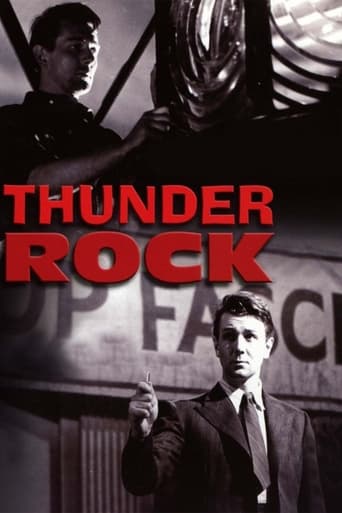

I think this is a new genre that they're all sort of working their way through it and haven't got all the kinks worked out yet but it's a genre that works for me.
... View MoreThis is How Movies Should Be Made
... View MoreSadly Over-hyped
... View MoreFrom my favorite movies..
... View MoreAll the reviewers who wished they could see this film again (some of whom saw it originally in 1942!), can now see it again if they are resident British and subscribe to Freeview tv on Channel 81 It is shown regularly on this wonderful channel which I constantly watch if you can put up with the adverts which finances it, as it saves paying for numerous dvds which I used to do before I discovered this tv station.For example, every Sunday @ 9.p.m. GMT they are repeating the wonderful mid 60s episodes of "The Human Jungle" starring Herbert Lom which I originally saw when it was transmitted (I am now 72).Some reviewers thought Thunder Rock was too stagey.Does it matter? I saw the classic R.C.Sherriff's "Journey's End" on Youtube the other day which of course is based on his play.What if Michael Redgrave is a bit declamatory at times, he was an accomplished stage actor first.In 1942 Britain was in a precarious position so of course the Government sought propaganda films to help morale & the war effort.See this film on the aforesaid channel, the tv station is bound to repeat it occasionally.
... View MoreUnless you happened to see the play - by Robert Ardrey - on which the Boulting Brothers based their film then the only selling point is Michael Redgrave. By 1942 he was a seasoned film actor having served a distinguished apprenticeship in the theatre and although it did no harm to feature the likes of James Mason, Finlay Currie, Barbara Mullen and Lily Palmer in support by this stage of his film career Redgrave was fully capable of carrying a picture by himself. It is, of course, also necessary to remember that the film was shot in 1942 and released the following year, in other words right in the heart of World War II so it would be foolish if not futile not to expect a large propaganda element which now seems irrelevant. Bearing that in mind and making allowances this remains a half decent effort with Redgrave delivering the goods.
... View MoreThunder Rock is directed by Roy Boulting, is based on the play by Robert Ardrey, has a screenplay by Jeffrey Dell and Bernard Miles and stars Michel Redgrave, Finally Currie, James Mason, Lilli Palmer and Barbara Mullen.Thunder Rock is set during the Second World War. David Charleston(Michael Redgrave)is an embittered writer, who despairing of the awful things humans do to one another, becomes a lighthouse keeper. His friend Streeter(James Mason)brings him provisions and tries to work out why he hides away from people. David brings to life in his mind the ghosts of some passengers from a ship which sank with all hands near the lighthouse in the 1800's. Those he sees include the Captain (a gruff Finlay Currie).David wishes he could escape into the past to their time. He believes the past to have been uncomplicated and not as dark and terrifying as his present, he soon finds that view is far from true.Redgrave is superb in the lead role and I liked the fantasy element to the film where the ghosts appear to him. The film also does a good job of showing those of us in the present that our times may be terrible but each period in history has had it share of good and bad people and events.The entire cast are superb with special praise going to Redgrave and Barbara Mullen as the spinster who wanted to live her own life, not the life men told her she would live.
... View MoreMichael Redgrave (Charleston) is a lighthouse keeper on a remote lighthouse on Lake Michigan. He used to be a reporter but no-one listened to his warnings about the evils of the emerging New Order in Germany and Italy. Disillusioned with mankind he chooses to live away from it all. His friend James Mason (Streeter) tells him that he thinks he is a coward and the two fall out, leaving Redgrave alone on the lighthouse island. But is he alone? It's an interesting premise for a film and it scores with me for doing something different. However, it does drag on a little which is a shame. I wanted this film to be an eye-opening ghost chiller with a message but it only drives home a rather obvious point and isn't scary as such. It is other-worldly which is good. And there is a climax scene where the ghostly images are presented with the truth about their lives. Are they real ghosts or images conjured up in Redgrave's head? The film favours the latter for a means of wartime propaganda but the film would have been better if the former was what is actually happening. It is, of course, actually happening for Redgrave so we go along with him. But, if it was actually happening .spooky As an aside, I always thought it would be a weird experience to live on a lighthouse. Turns out my wife has a lighthouse connection as one of her great ancestors was a Lighthouse Keeper at Dover. Whilst the custodian, English scientist Michael Faraday helped install the light there and Italian engineer Marconi transmitted the first radio signal abroad from it. He sent a signal over to France ..and we now have the Eurovision Song Contest ..so it was totally worthwhile.
... View More